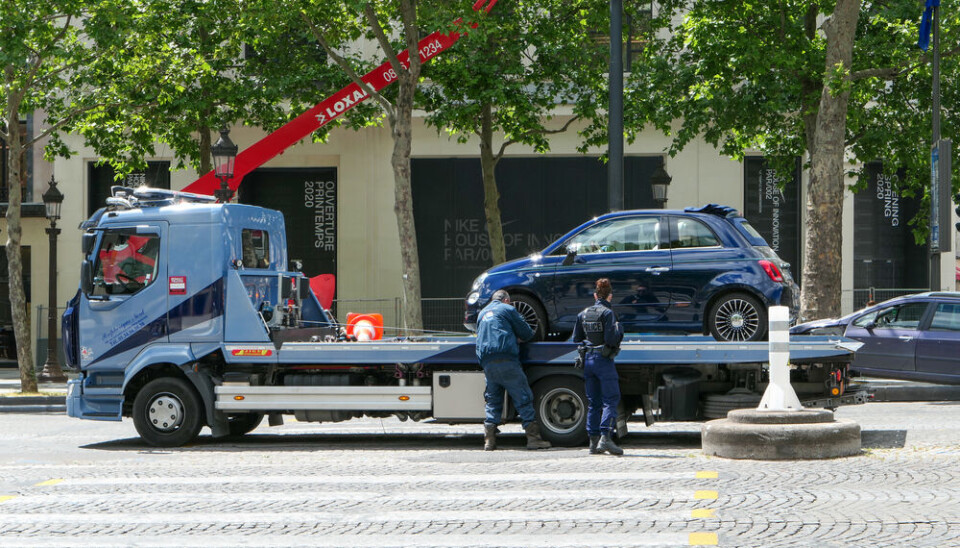-
Why you can contest a speeding fine when driving to Italy from France
A new initiative has discovered that the majority of Italian speeding fines may be legally void
-
Speed cameras to verify car insurance in severe cases
Penalties for speeding more than 50 kph over the limit have also been stepped up
-
Cost price fuel available at hundreds of petrol stations this weekend in France
E.Leclerc and Intermarché deals coincides with winter holiday travel
How long can car be parked in same spot in France before police act?
Impounded cars are often destroyed after being taken away

There are a host of rules for drivers to be aware of when on the roads in France but there are also some that affect parked cars too.
This is particularly the case for cars parked in public spaces, with rules including whether you can place a ‘for sale’ sign in the vehicle’s window.
Read more: How do you sell a second-hand car in France?
There are also rules about how long cars can stay parked in one spot.
A driver from south-west France recently told French media outlet La Dépêche how he returned from a two-month holiday to find his car had been towed away and later destroyed.
It happened despite him not responding to a letter at his main home in France informing him of the situation.
He had parked his car in a free (from payment) public parking space on the streets of Biarritz, believing he was allowed to keep it there without restriction as there were no signs stating the contrary.
Is there a time limit a car can stay in one spot?
There are legal restrictions on how long you can park your car in a public space. Article R417-12 of the French Highway Code stipulates vehicles cannot be parked in the same public spot for seven consecutive days without being moved.
Note however that departments and cities are free to shorten this if they wish, down to potentially a 24-hour maximum.
Failure to move a car can result in a €35 fine, but officers do have the power to request a car be impounded if it has not been moved.
The officer adds the necessary vehicle information into an automated database (Système d'information national des fourrières automobiles, sometimes called SI Fourrières).
The system is responsible for letting people know that their vehicle is at the risk of being impounded via a lettre recommandée avec accusé de réception (letter with acknowledgement of receipt).
This itself must be answered within 10 to 15 days, otherwise the vehicle risks being sold or even destroyed after being taken away.
In some cases this has resulted in vehicle owners – perhaps away travelling when the letter is sent to them – being unable to respond because they do not see it, and losing their vehicles.
Read more: How do you register a used car in France?
How can I avoid having my car towed away
In general, the best thing to do is park your vehicle in a private space, such as a garage or on your driveway.
If you cannot do this, you can also use paid-for parking lots, where you can keep your car indefinitely as long as you pay for tickets covering the time period.
Another option is to give a spare set of car keys to a person you trust, who can move your car to a new spot every few days (or every day if the rules are strict).
It does not matter how long the car is used for, just as long as it is removed from the same spot within the time frame.
If you think your vehicle has been towed away, you can enter its licence plate into the government tool here to check.
One thing to note however is that not all impound yards are currently connected to the service, so it is also worth calling your local gendarmerie or police office to double check if you are concerned.
Related articles
Phones, tests, lorries: Changes on way for (some) drivers in France
Explained: Electric vehicle grants, maintenance and charging in France
























